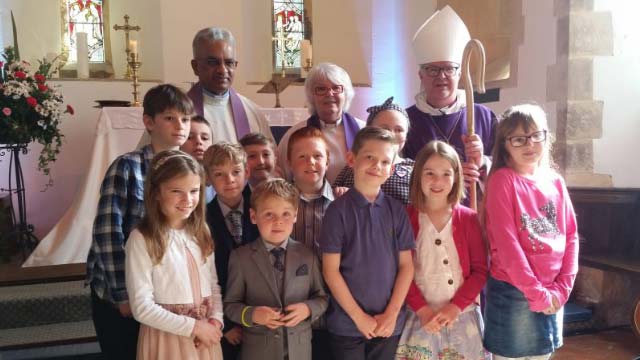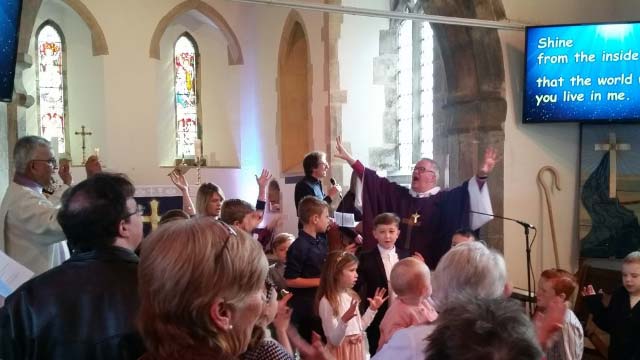Inclusive, Informal, Interactive, Friendly, Fun And Free!
At Scampton Church we believe that following and worshipping Jesus should be fun, exciting and not too ‘stuffy’. We are passionate about developing ‘Fresh Expressions’ of Church to encourage one another to grow in our faith and to enable our worship, prayer, and teaching to be modern and relevant.
In an effort to make our church as easily accessible as possible to anyone we want to live out our faith through our upfront statement of welcome and intent. Inclusiveness and accessibility for all became our priority because without that, encouraging our community to get to know about Jesus would become insincere, as Jesus Himself preached God’s inclusive kingdom. So to help this to happen our six word invitation to services and activities was conceived. We decided that if at all possible, we would make everything we did:
Inclusive, Informal, Interactive, Friendly, Fun And Free!
For a few years now we have been developing our monthly family service, which has steadily grown in popularity. The more we thought about it the more we realized that the central part of the service ie. our thanksgiving communion, was not INCLUSIVE of children. The Ely report, and the regulations made at the 2006 Church of England Synod state that dioceses in the Church of England now welcome children to Holy Communion before confirmation; a fact that is not widely known. So, with the help of David Court, the Bishop of Grimsby, Jonny Bell and Charlotte Bloom from the ‘Lincoln Diocesan Children and Youth Mission’ we started to develop an action plan… And so our new and exciting expansion to our already popular Family Service was conceived.
We wanted children to be welcomed and valued equally, not excluded from this key element of worship. We followed the Diocesan advice, which stated that children must be seven years or over and be Christened/Baptised.
My grandchild at 7 years of age is a part of the new ‘i’ generation (born after the millennium and so called because of mobile technologies: iphone, ipad, ipod, Wii, iTunes, iOS) and at school, is already learning about prisms, cubes, rhomboids and spheres, swiping, pinching, Googling, Gooey (that’s really spelt ‘GUI’ meaning graphical user interface for those who might not know), and raspberry pies (not the ones you cook!). She is a part of a new generation brought up on technology and encouraged to be openly questioning at school.
Children are naturally included in family life and if parents or carers are participating in a thanksgiving or communion service, then today’s ‘i’ generation of questioning children are likely to say ‘why can’t I have some’! We felt that Jesus wants to feed all who want to understand, so we wanted to make the answer – ‘yes, you can have some’.
The gift of bread and wine is not for certain people only. Jesus shared bread and wine with the male disciples, as was culturally normal at the time, but this is not to say that the model of sharing bread and wine in Jesus time and culture is only appropriate to male followers now.
In the early stages of the venture there were concerns about unconfirmed children of seven years of age taking communion. We tried to answer some of the concerns raised as follows.
Q: Is my child too young to understand?
A: Experience over the years in the Church of England has shown that children of 7 years and over have sufficient maturity and understanding to participate in Communion.
Q: What if my child is not baptised/Christened?
A: This is not a problem. In most cases, children can be baptised/Christened before the next communion service.
Q: Don’t I have to wait until my child is confirmed before they can take communion?
A: No – The Church of England now allows for children to take communion with the local Bishop’s permission, and preparation beforehand.
Q: As an adult I’d like to know more myself. How do I do that?
A: Why not come along to our next Alpha Course.
Also we thought that:
- If the whole family of our Church worship and receive together, then children learn to behave appropriately.
- Children should be welcomed and valued equally.
- Having children share in family communion is the true historical tradition of the Church.
- Children gain specific teaching at a receptive age and understand what they are doing to their level of understanding.
- Confirmation is not rushed into and children would become more aware of the promises they are making.


